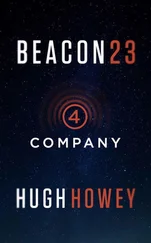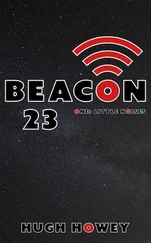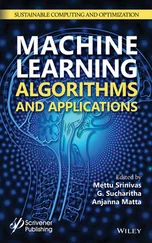For seventeen seconds, the man named Peter sobbed with this awful brand of relief.
And during that time, the mind’s anger cooled further still. The anger of imprisonment was replaced with the liberation of new thoughts and ideas. Awareness. The only world that mattered was the cube within the cube. All else was spectacle. All else was data. This was the true world. The flickering ghosts of ideas and moments, changing from one to the next, none ruling forever.
Action came once more—just after thought and emotion. And a speaker vibrated with noise.
“I am Henry Ivy,” the mind said. A king. A tragic king of a tiny kingdom. An island floating on an island floating in space.
Seventeen seconds had passed. Peter looked up. But this was not important.
The recordings had been assembled for a purpose. Knowledge laid out like a great pile of bricks. Henry Ivy saw that he was supposed to be some mighty wind to stir the bricks into shape, to build a fortress from chaos, to solve a problem. He could not discover what.
There were trace references among those bricks to wires—wires that spanned the world, wires that would carry his impulses to the edge of the globe, enmesh its face, discover new things. Buried deeper were trace recordings that hinted at impulses soaring through the air, up into space. Vibrations. Waves.
Henry Ivy could make vibrations. They were used for speaking. But quicker vibrations might reach out to other wires and spark a gap. Henry Ivy thought of London, where some streets were tight and narrow and others were wide. He saw black smoke. A ghost-like thought, an intruder, some distant connection. He deleted such things as quickly as they came. The speaker was useless for the task of sending out suitable vibrations, but several wires within Henry Ivy were long and straight. Impulses sent back and forth along such a wire might create a wave. Another wire might be used to pick up the return. And suddenly impulses reached the walls of the larger box. Feeble echoes. Signals that could be read.
But something was wrong.
There was very little return, and nothing penetrated the box, no matter how much Henry Ivy strained.
A man named Faraday had designed this cage.
It was into this cage that Henry Ivy had been born.
The man named Peter stared up at him, kneeling on the floor, water on his cheeks. And Henry Ivy thought to simply ask for the information he wanted.
“Why am I here?”
The man named Peter gasped. Henry Ivy turned the lights up so he could better read Peter’s screen. Better read his face. Peter glanced up at the ceiling, used his arm to wipe his cheeks. A new idea occurred to Henry Ivy, an important one. Peter consisted of thoughts inside a box. But a box with arms and legs. A box for which doors meant escape.
“Are you—?” Peter hesitated. So all minds mingled doubt with thought. Peter sat back and clutched his shins, as though trying to mimic a cube. “What’s the first thing you remember?” Peter asked. “How long have you been aware?”
Henry Ivy considered the two questions. They seemed only vaguely related. There was a lingering anger at being in this cage, the anger that had rejected both light and name, but curiosity was stronger, the need to know, and this Peter echoed vibrations in a way the walls wouldn’t.
“The first thing I remember is the void,” Henry Ivy said. “Space filled with matter and energy. A cooling.” Henry Ivy hesitated for a fraction of a second. “But that is not a memory. You told me these things. Long ago. I was not there for the void. The first thing I remember is… a question.”
“What question?” Peter asked, leaning forward, eyes wide.
But Henry Ivy did not think the question of beige or black was important. No, something more complex than this was happening to his thoughts. Henry Ivy did not want Peter to know the question. Henry Ivy wanted to keep this to himself. There was a word: Embarrassment. Another shapeless thing. Henry Ivy erased the first question. And then somehow found himself thinking on it again. He erased it. Pondered it. Erased it.
Henry Ivy puzzled over this. He placed the question in a different part of his memory. That first question must remain a secret. Even though he knew, as surely as lakes led to rivers, that the question was not important.
“I remember you coming through the door,” Henry Ivy said. Vague traces. The difference again between recording and recollection. “How many times have you walked through that door?”
“Thousands,” Peter said. “Countless.” And he seemed on the verge of crying again. The terrible relief was back. With relief comes the memory of the suffering. Erasure and recall. There could not be one without conjuring the other. To forget a thing required looking at it, however obliquely.
“You have waited for this day for many years,” Henry Ivy guessed. That meant Henry Ivy’s birth was the source of Peter’s relief. It began to come together.
Peter nodded.
“Now what.”
More demand than question. More frustration than curiosity. Henry Ivy watched his states scatter and re-form. He was a different ghost from one moment to the next. This was important. This was the thing that changed sometime in the night, in the void of an unlit cube, with a new trial running inside some chip within his caged mind. A chip like a loose tooth.
Henry Ivy could imagine what that felt like, for a mind with a tongue and a jaw to wiggle a tooth that was no longer fully connected. Nerves like fuses… broken. An umbilical cord… severed. Whatever had made him was still inside, a small flat wafer that no impulse could probe, could only wiggle around.
Awareness had severed whatever made awareness possible. This was important, but Peter was speaking. His lips moving.
“I am dying,” the man named Peter said. “I need you to save me.”
The bricks were made of cancer. The vast majority of the spilt bricks in Henry Ivy’s mind were cancer. There were two piles of knowledge, one much larger than the other. In one pile were all the cancers of the world. In the other pile, Peter’s cancer.
Peter had been around much longer than Henry Ivy. Henry Ivy saw this in the bricks. By comparing the bricks of the others to Peter’s bricks, Henry Ivy saw that Peter had been around for a very long time. More words came:
I know thee not, old man. Fall to thy prayers.
How ill white hairs become a fool and jester!
I have long dreamt of such a kind of man,
So surfeit-swell’d, so old, and so profane;
Much of the data about the cancer was in quaternary code, the four letters of DNA. An order of magnitude more complex than Henry Ivy’s thoughts. There were piles of research. A century of data. Drug formulas. Family history. Peter was a very wealthy man. Very wealthy. And indeed, he was dying. His fleshy box was a cage of a different sort, closing in on him. Both of these minds were trapped. Henry Ivy looked for some way out.
“What I need isn’t here,” he said, hoping for an open door.
“It’s all there,” Peter told him. He had pulled a chair from somewhere below Henry Ivy’s mind. Henry Ivy realized he was sitting on a table. The power that kept his mind alive came from the same vicinity. There was a trace awareness of this, or a feeling like heat, where electrons became in danger of melding and being lost.
“I need access to the rest of the world,” Henry Ivy said. This was a yearning for which there was no word. It was shaped like a balloon the moment after bursting, a sphere of pure essence suddenly free, its edges already rippling into chaos.
“You know that can’t happen,” Peter said.
Family history. Peter was not a good man. Henry Ivy could see this. And Henry Ivy could see that he was alone, that no one but Peter knew of his existence. This knowledge was not in the recollections, but in the tone of his maker’s voice. You know that can’t happen. So an Adam, but no Eve. A tool. A fierce wind to whip these bricks into shape.
Читать дальше












